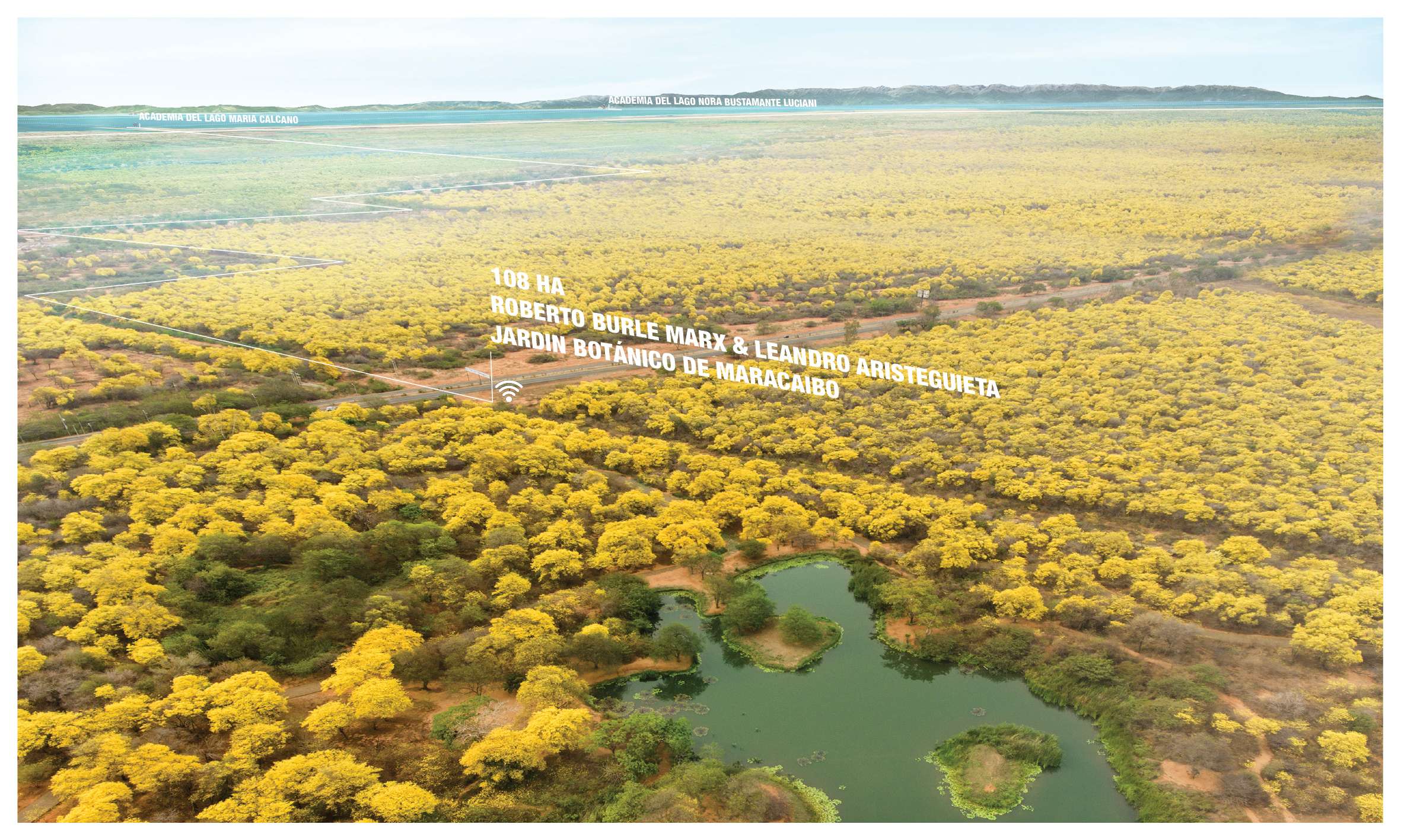
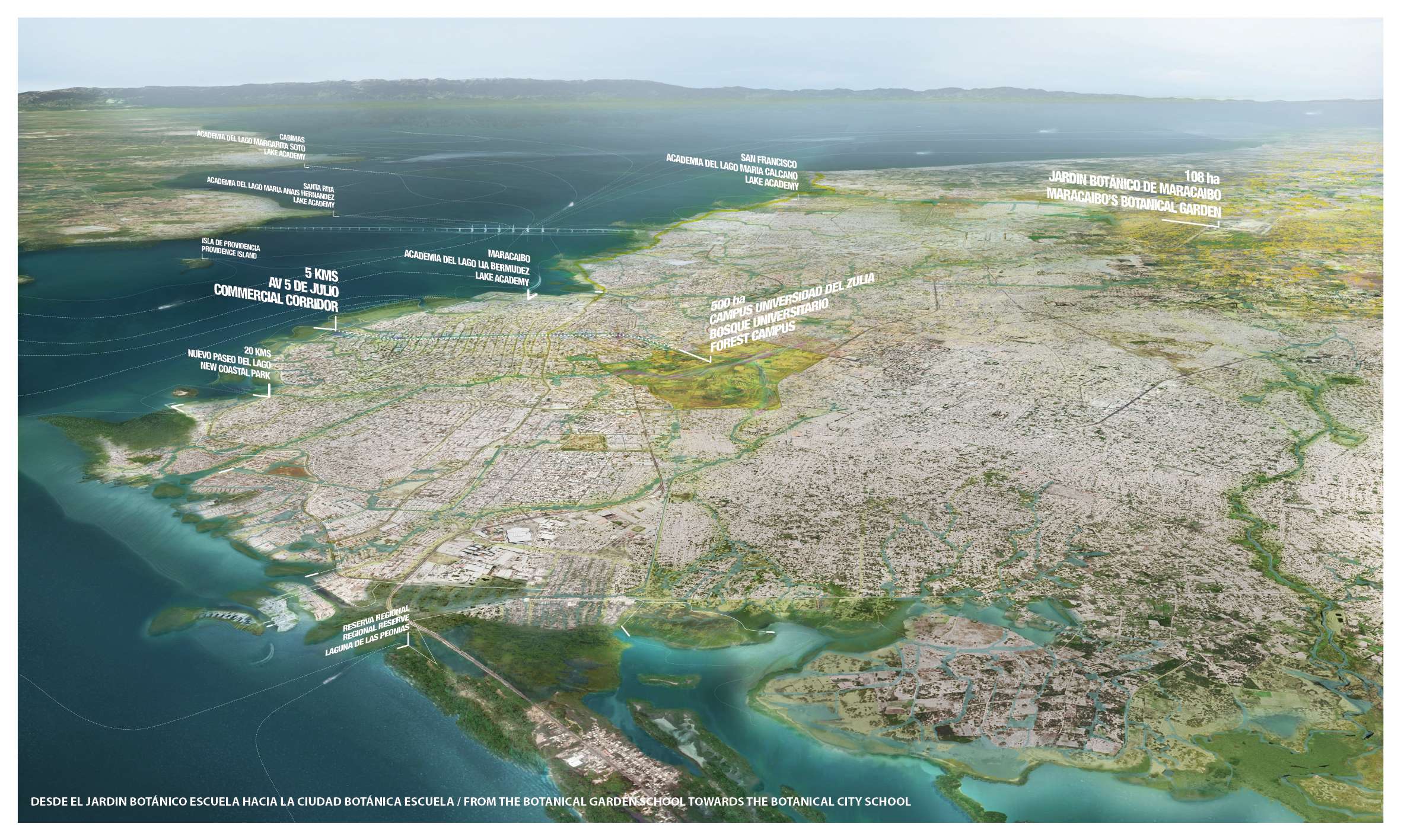
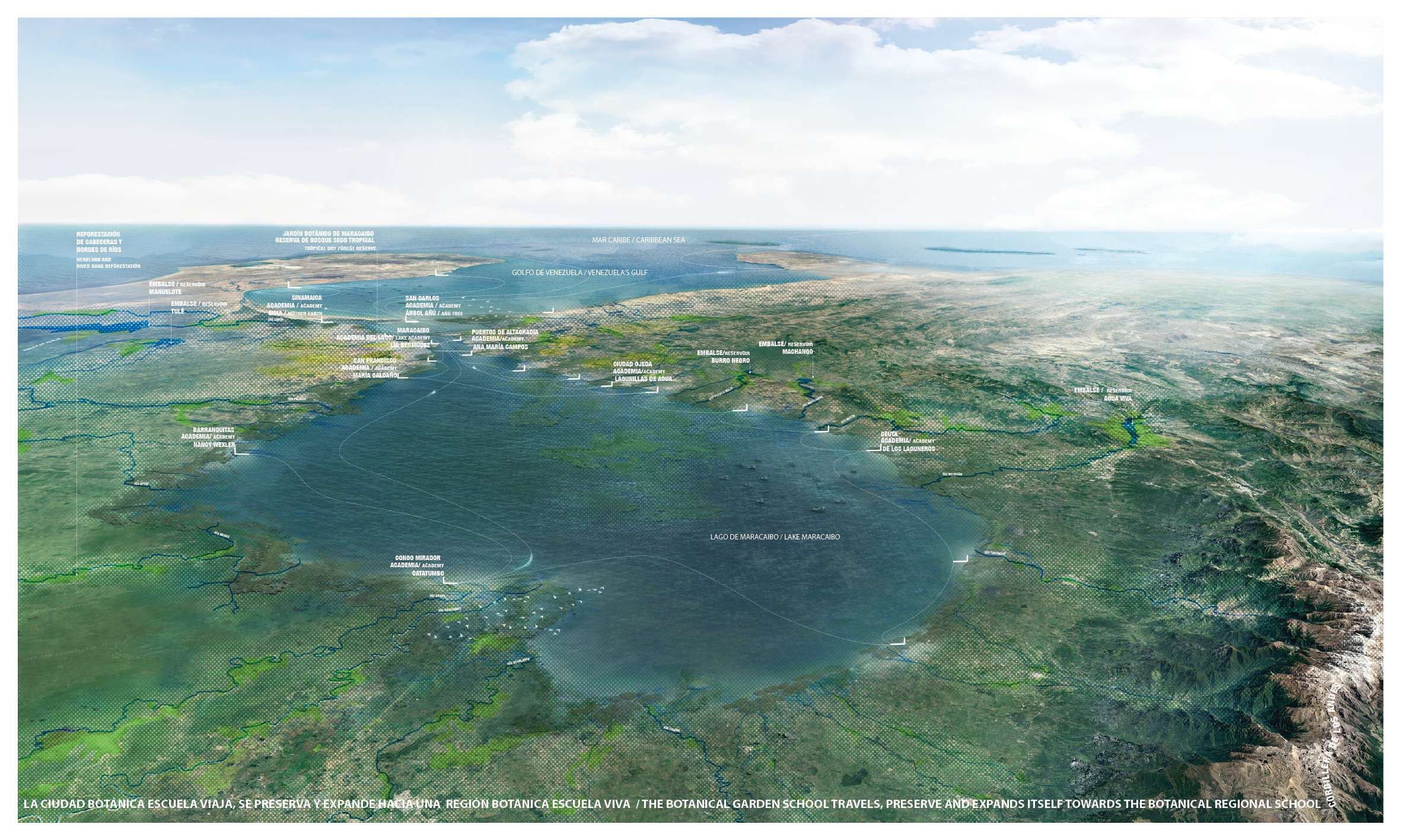

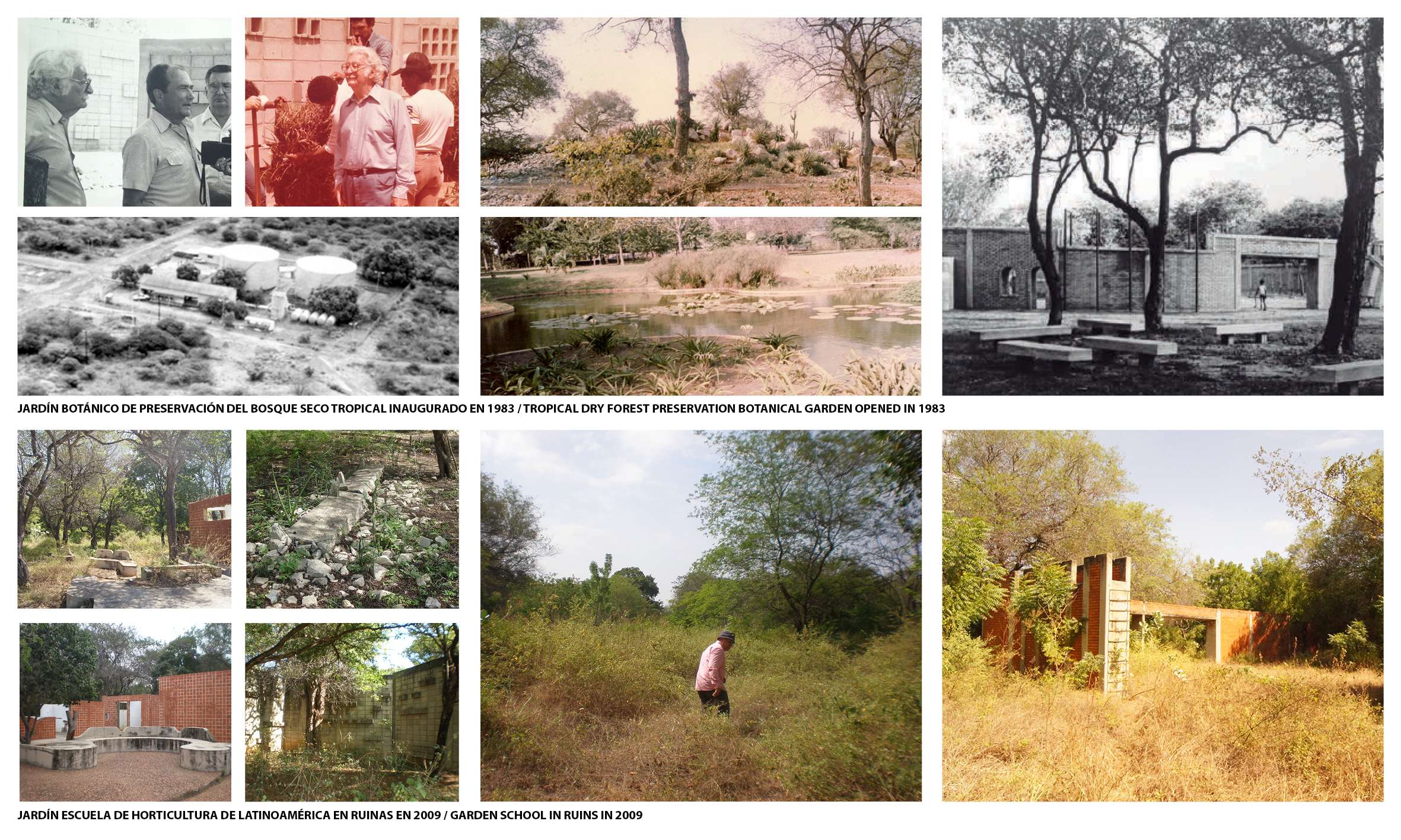
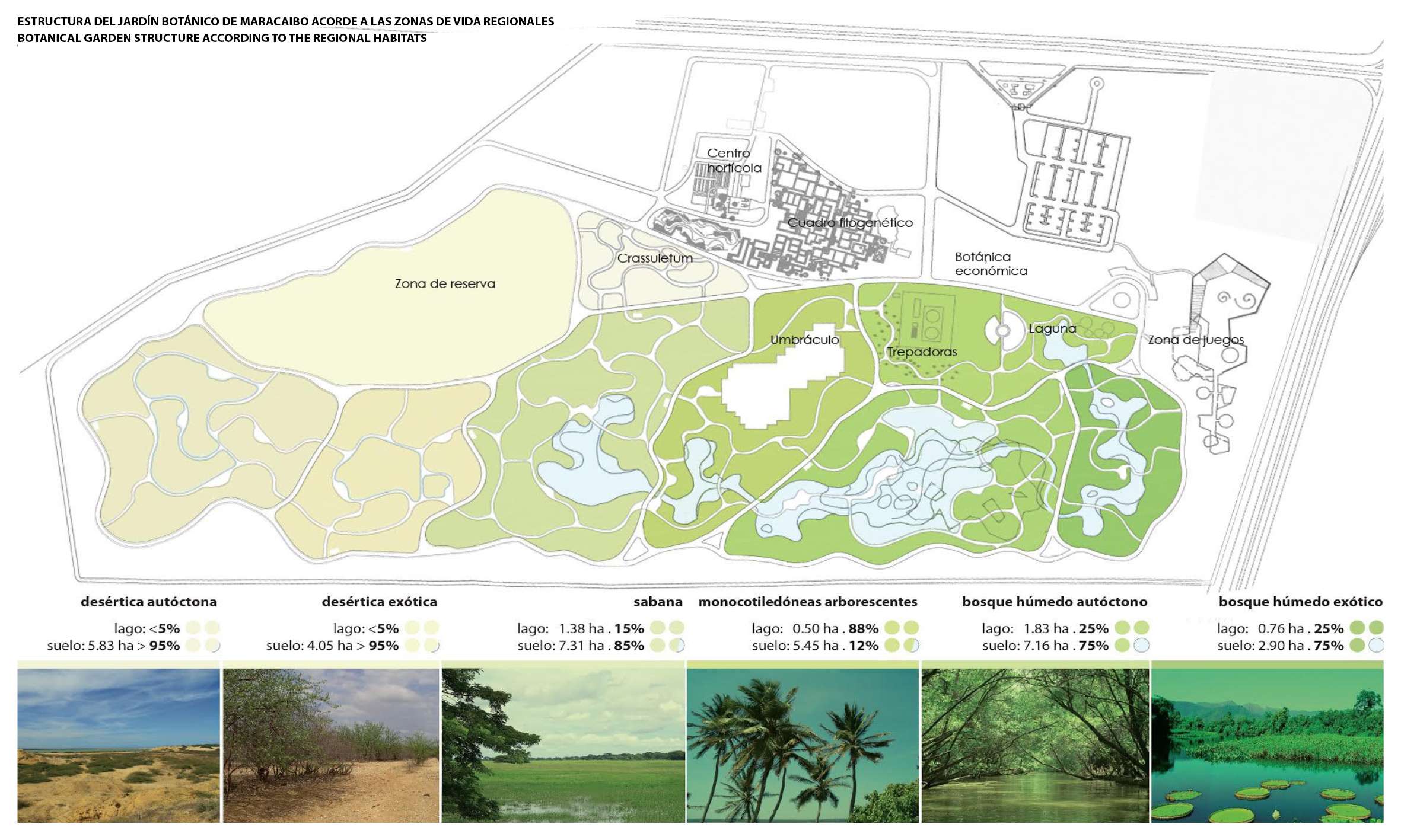
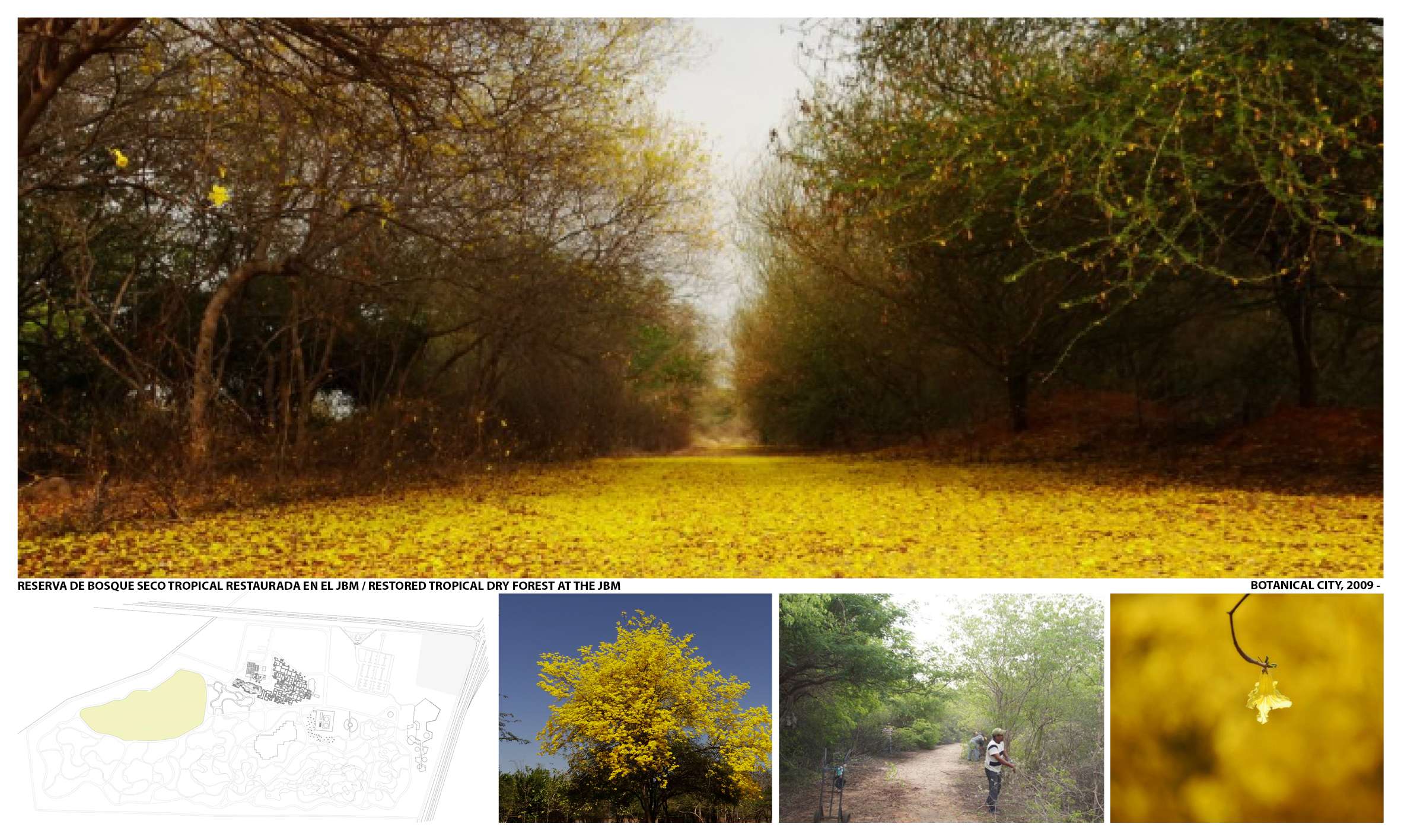
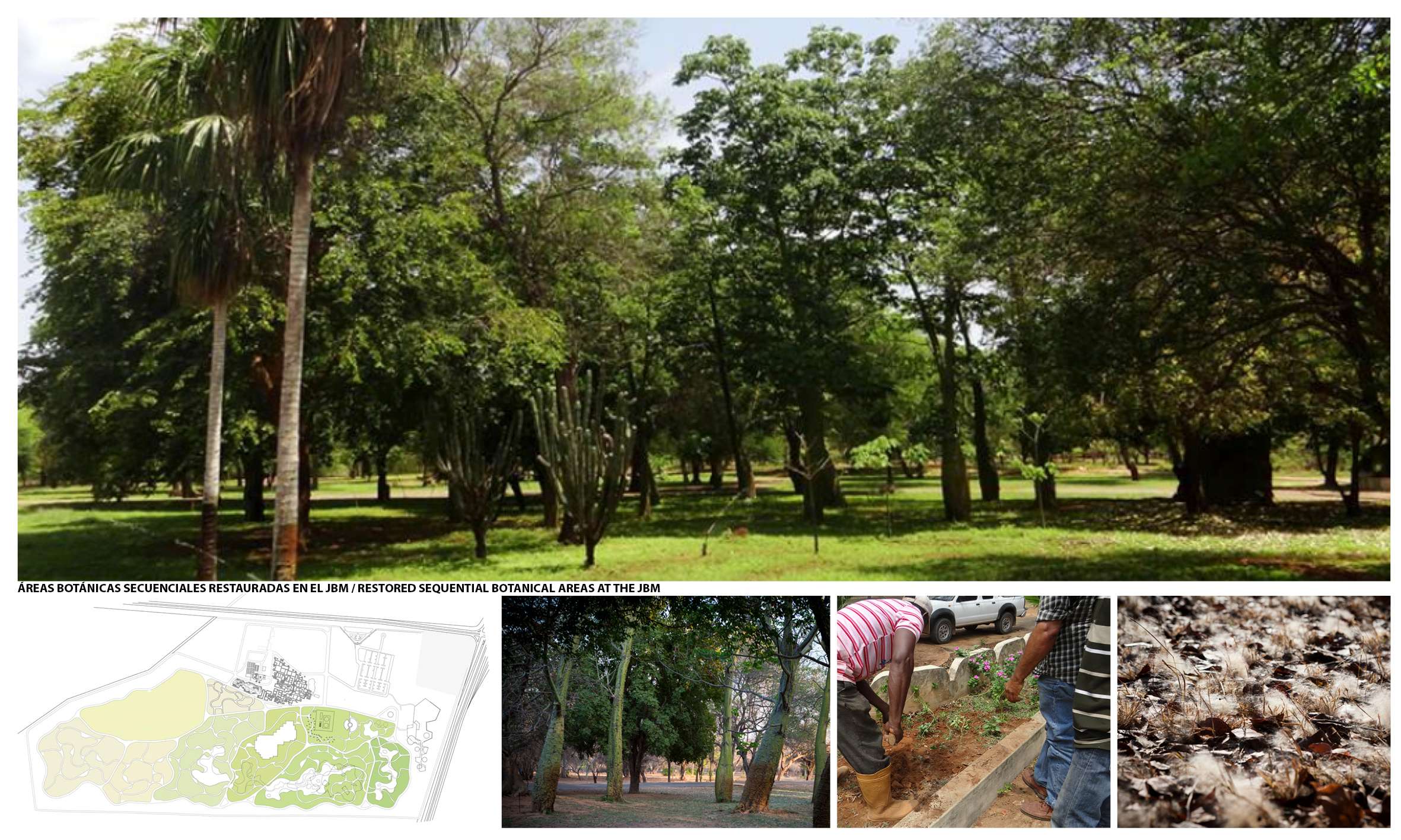

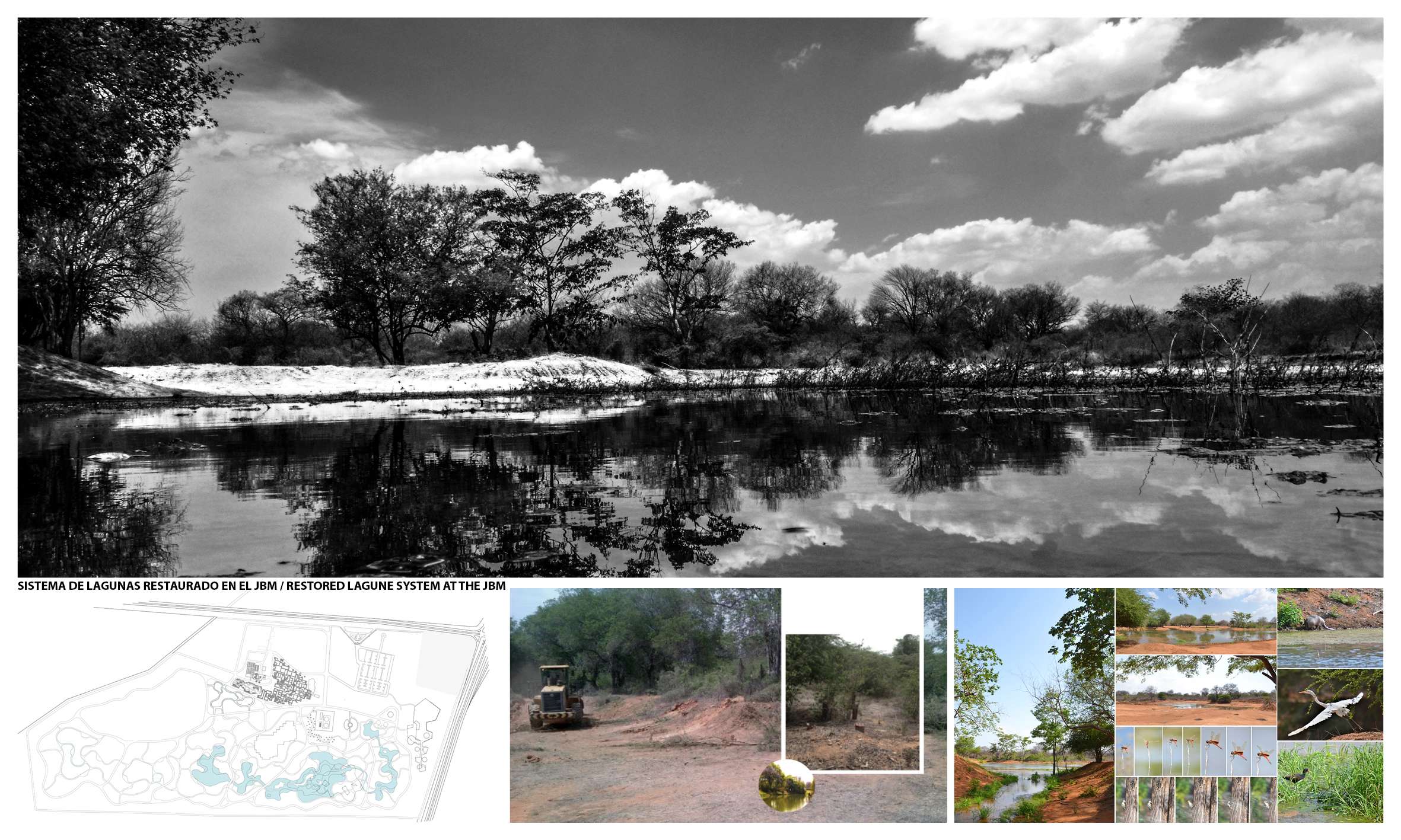
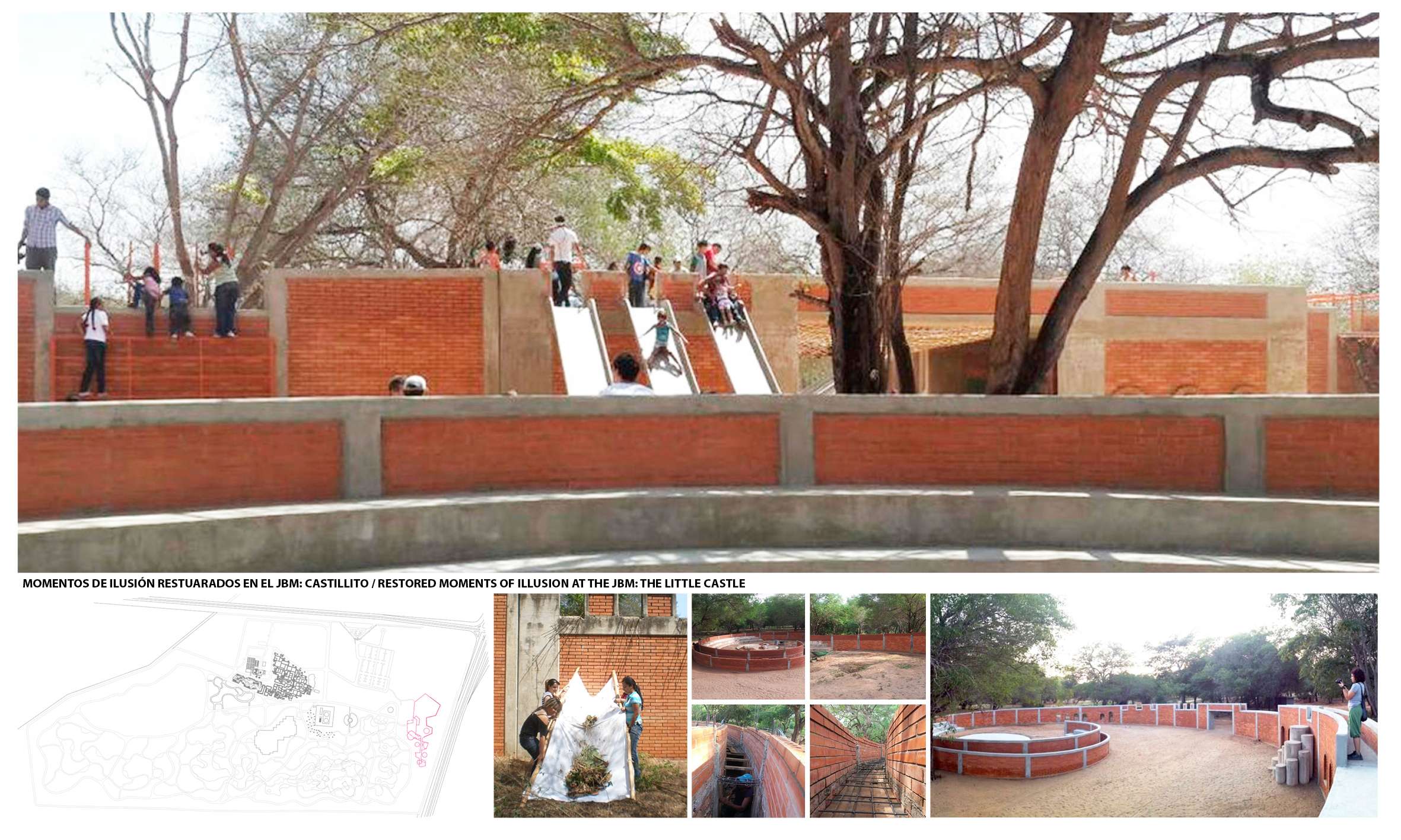
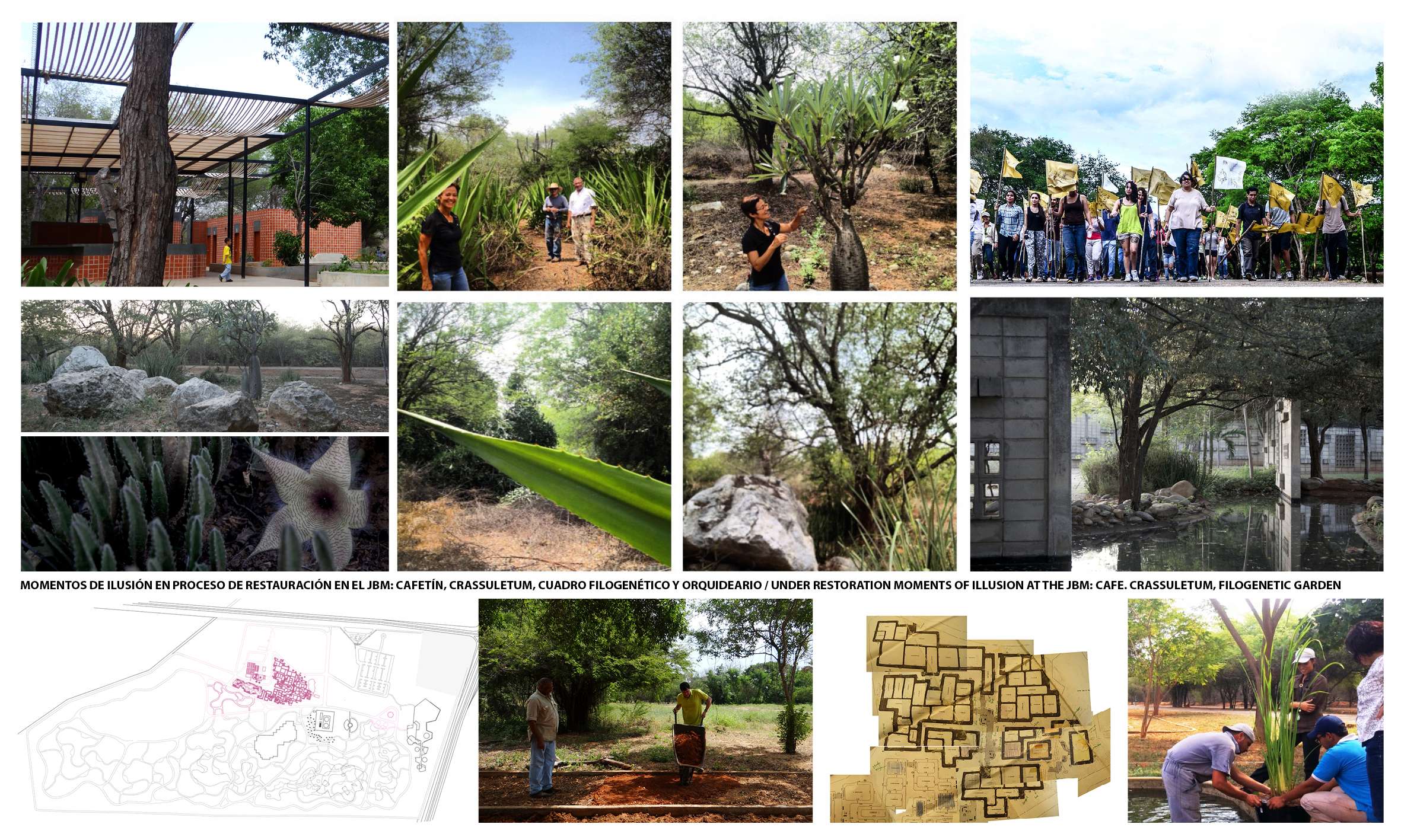
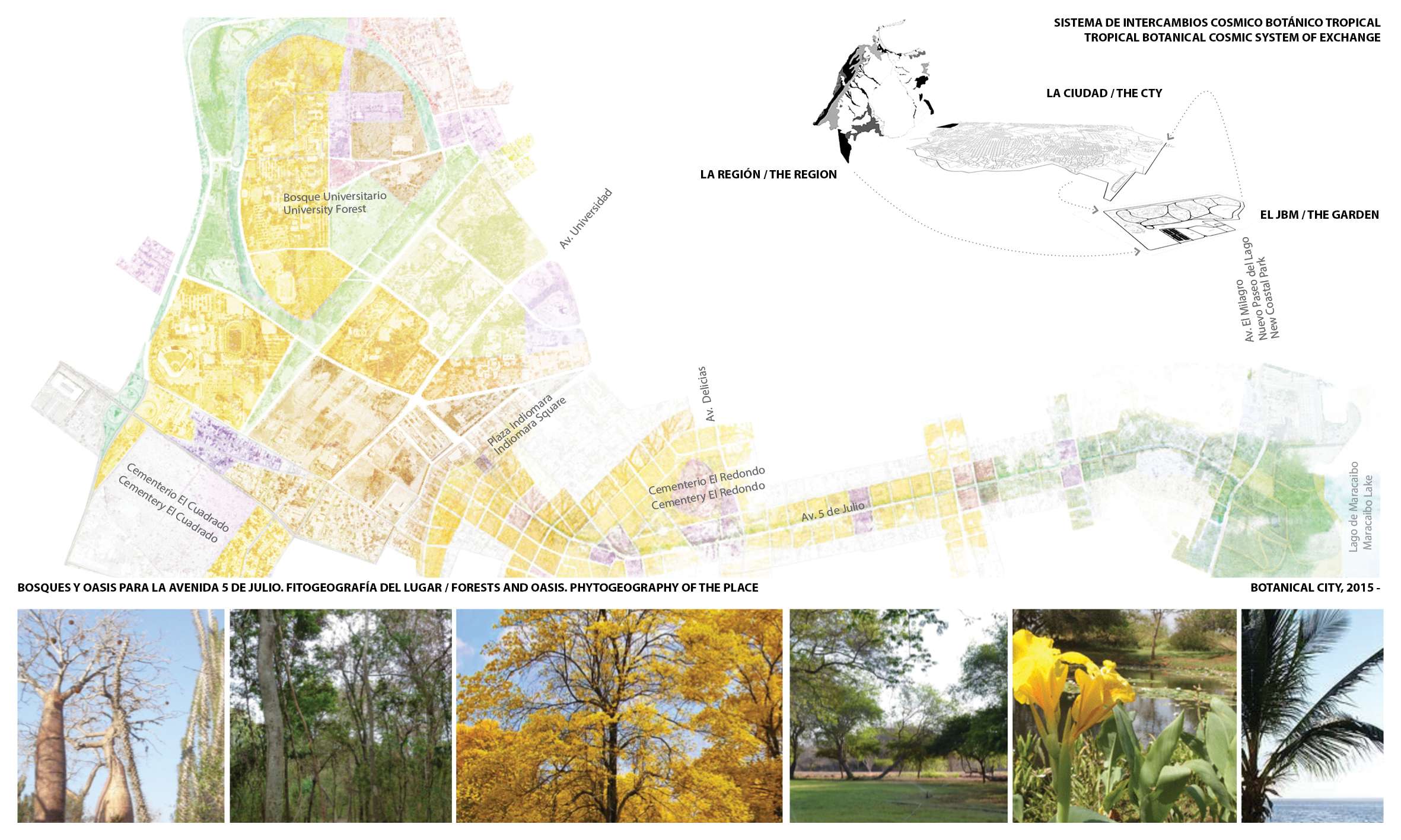
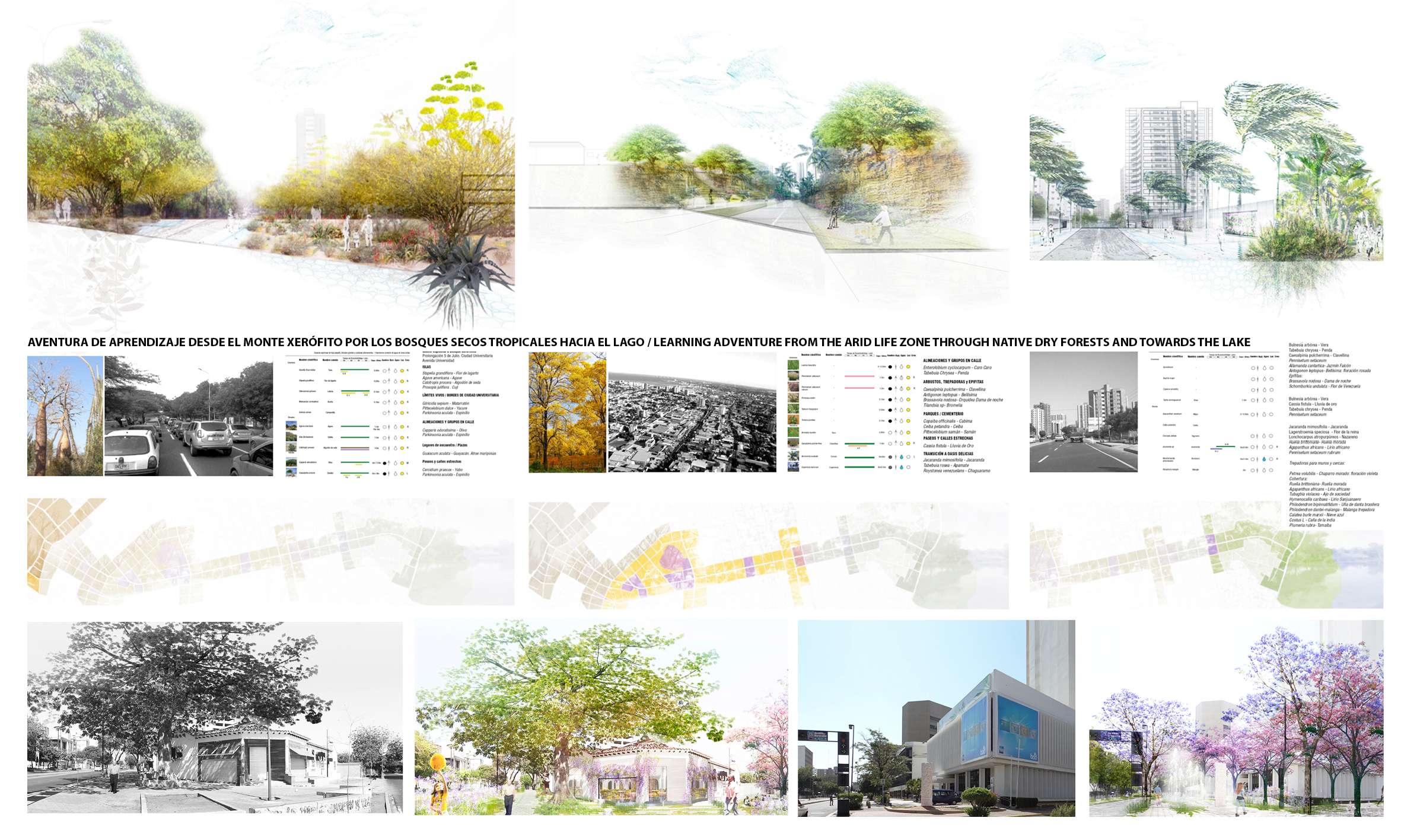
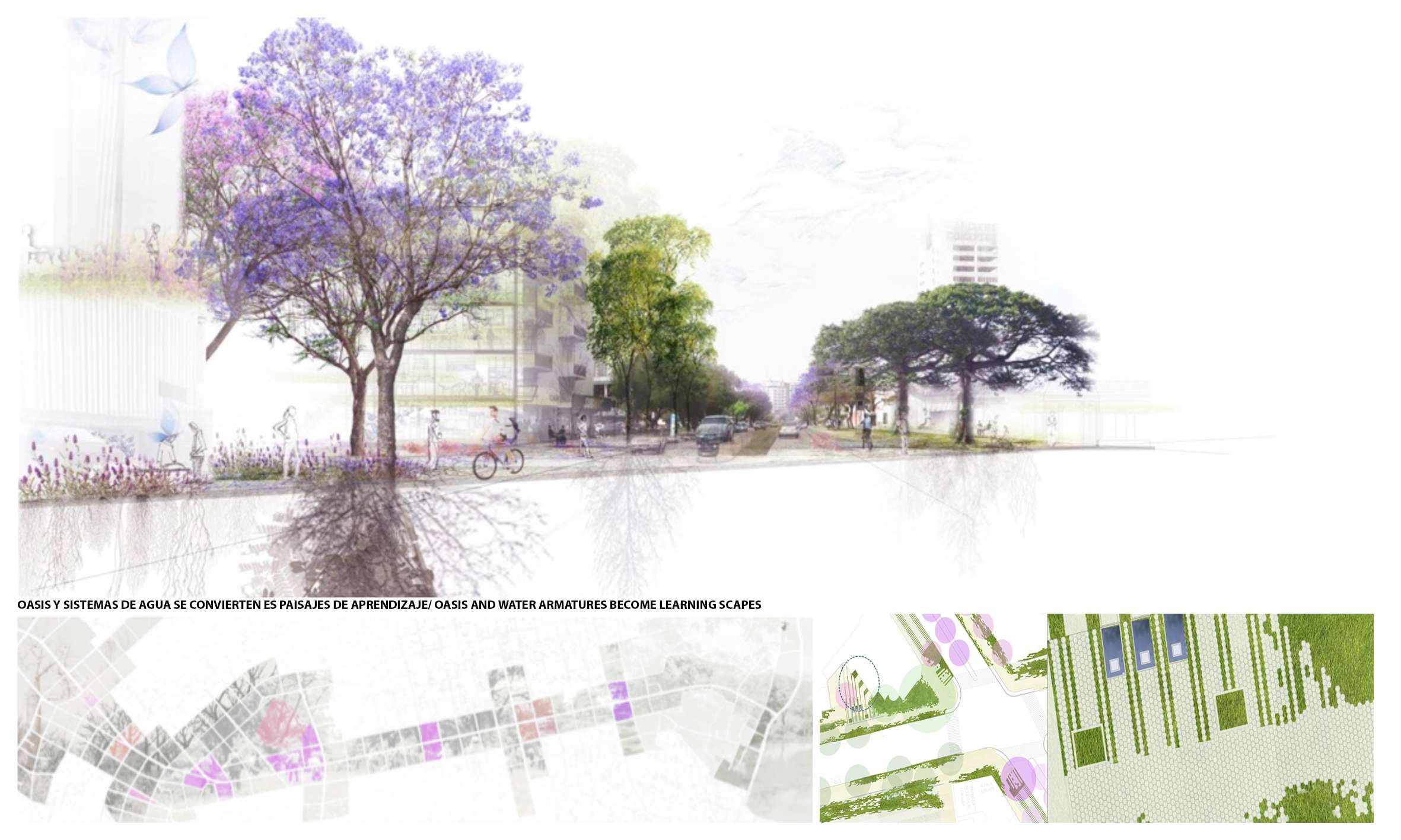
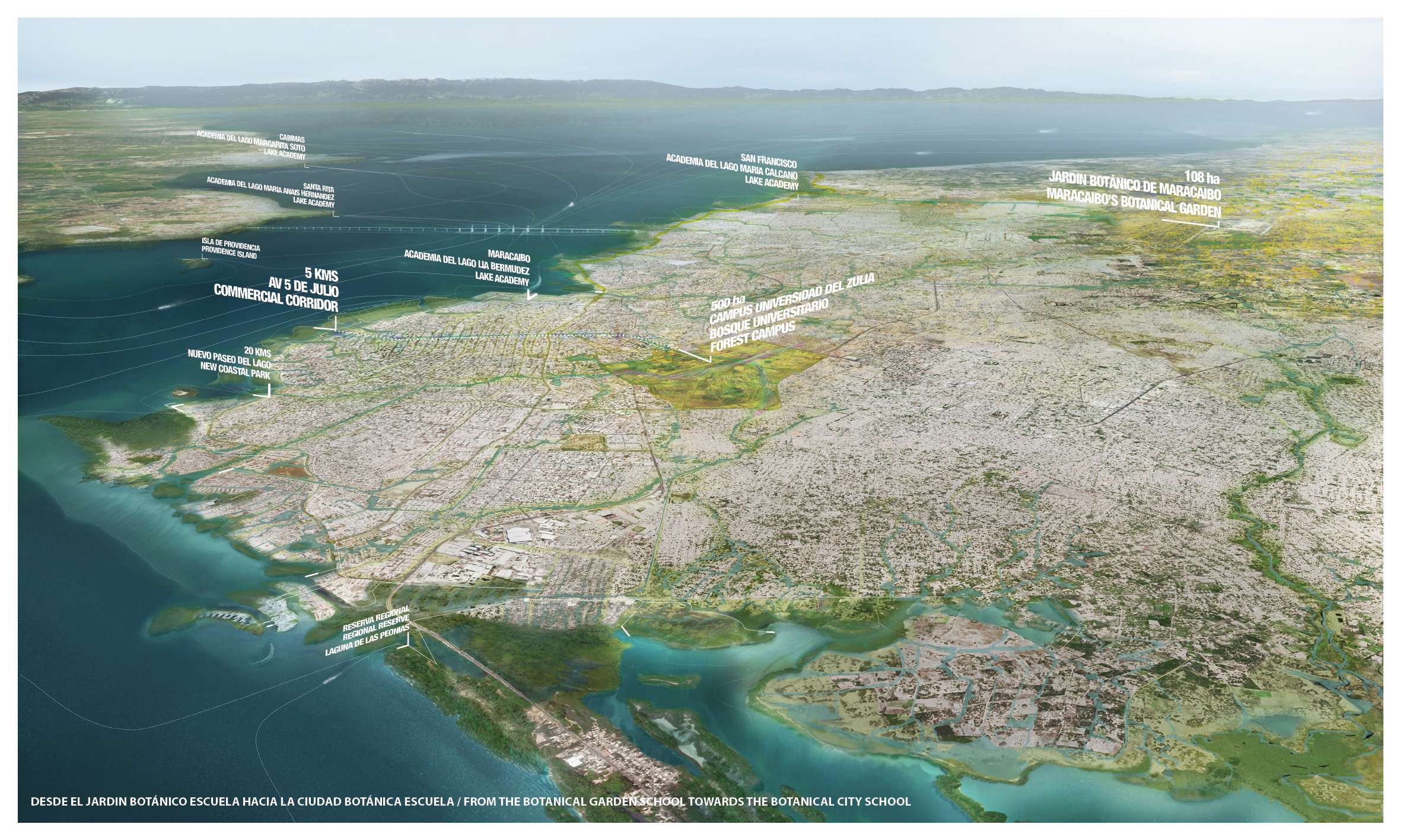
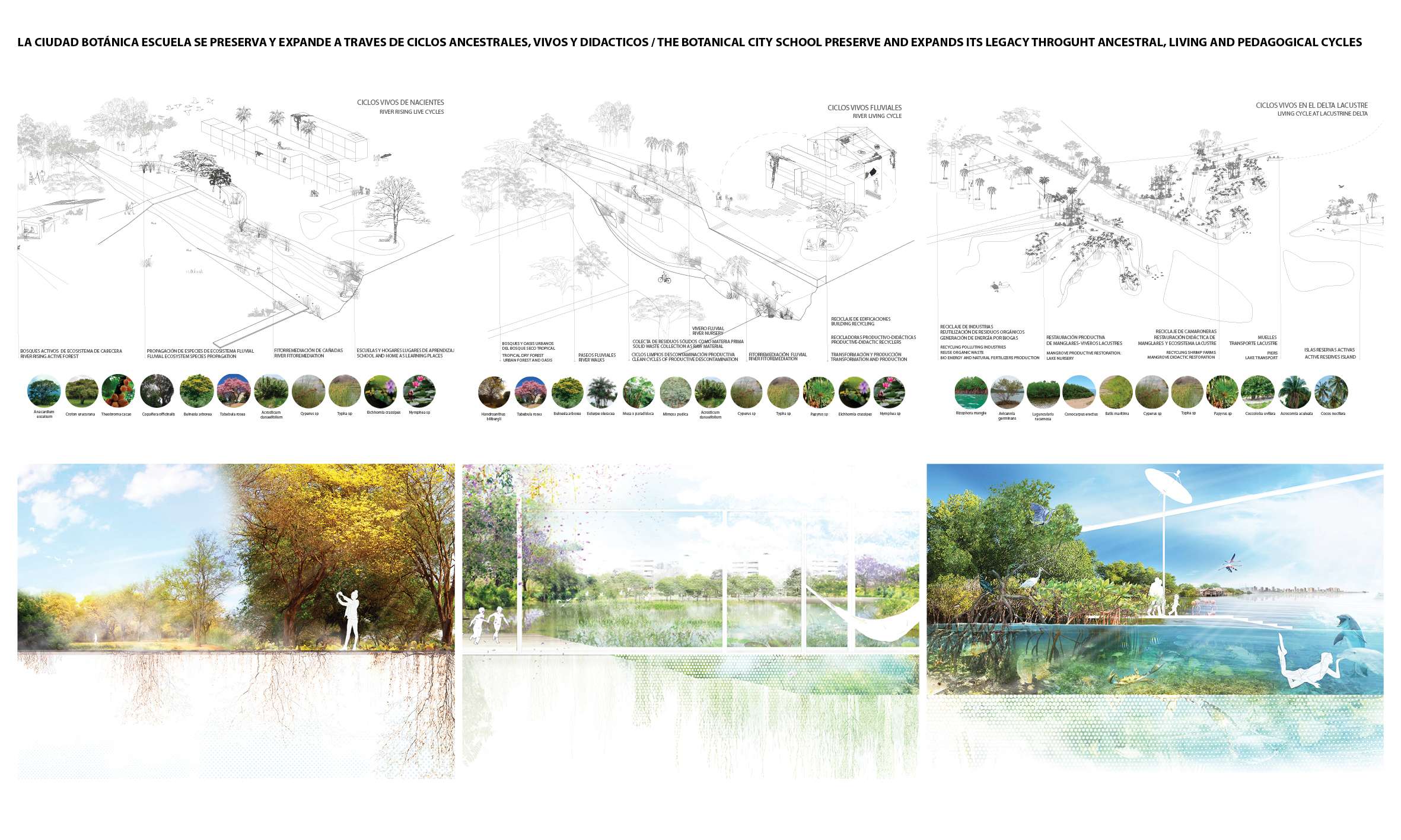
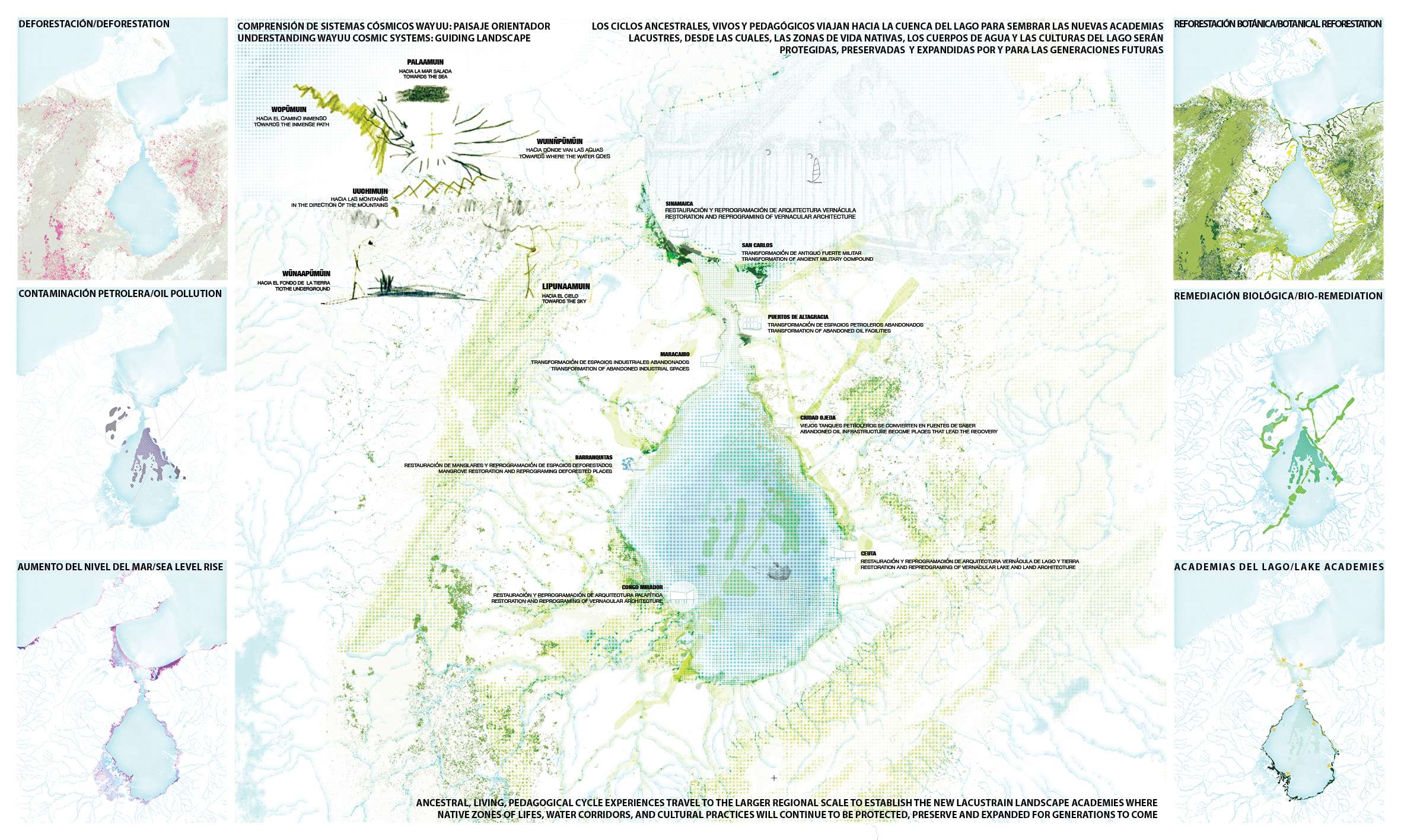
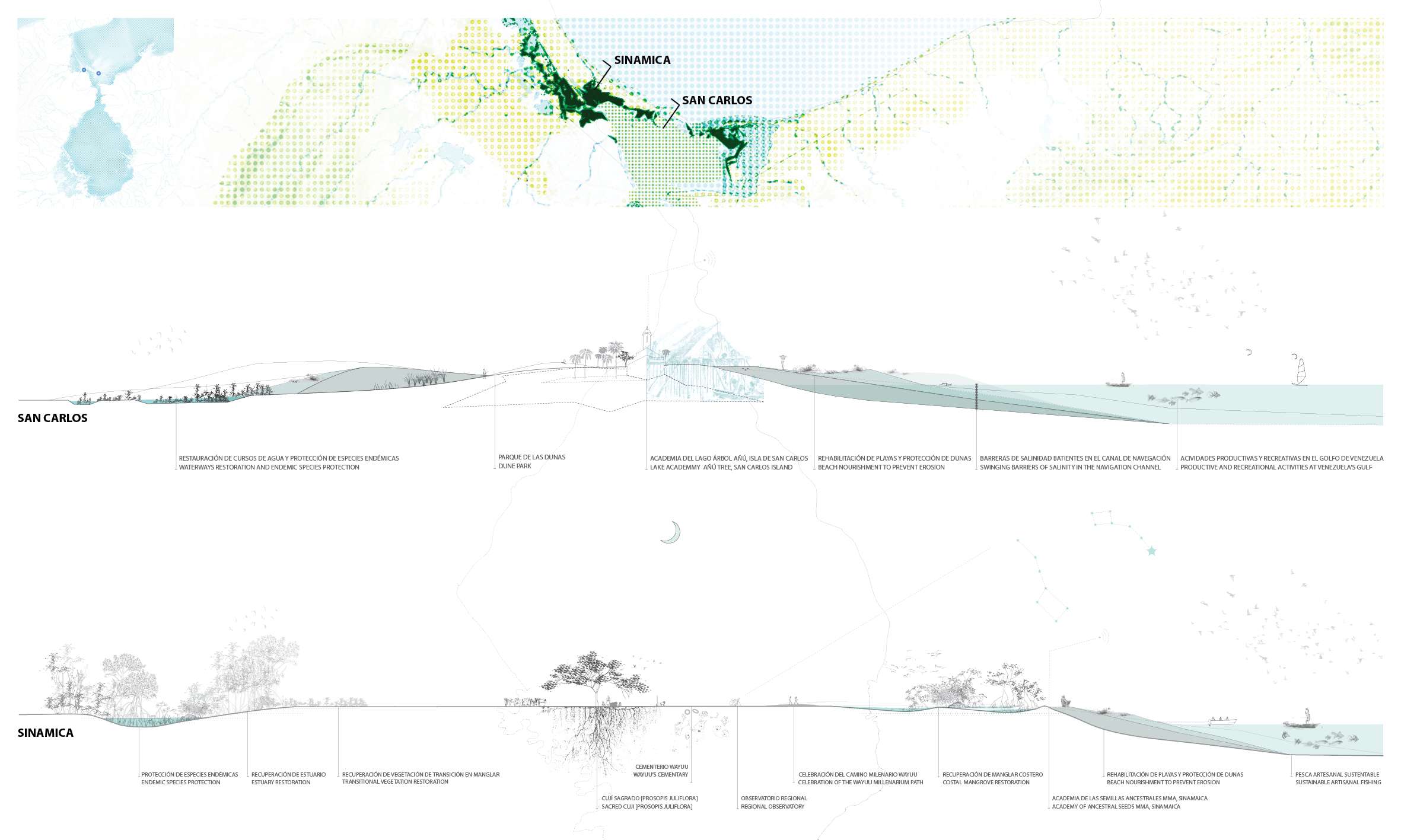
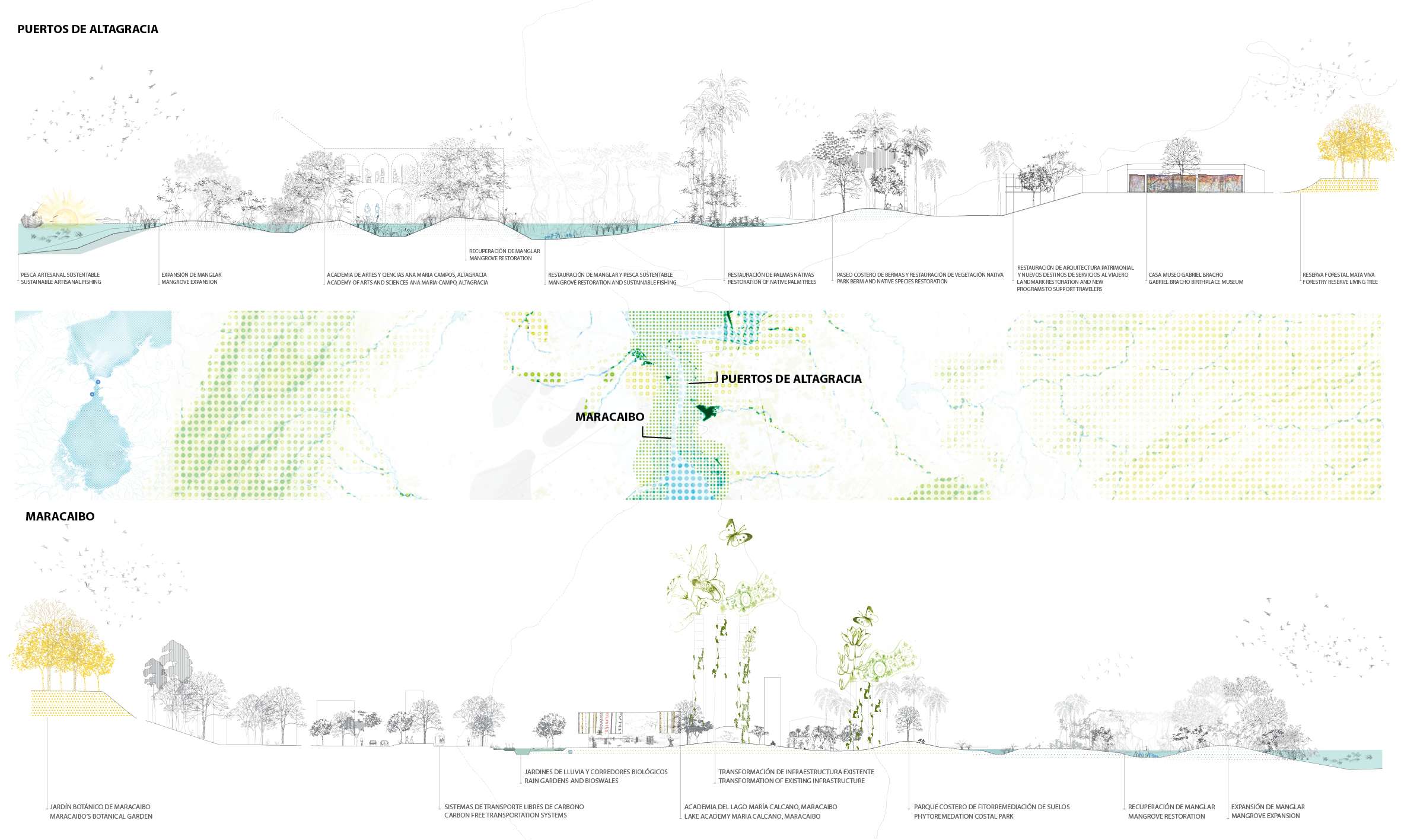
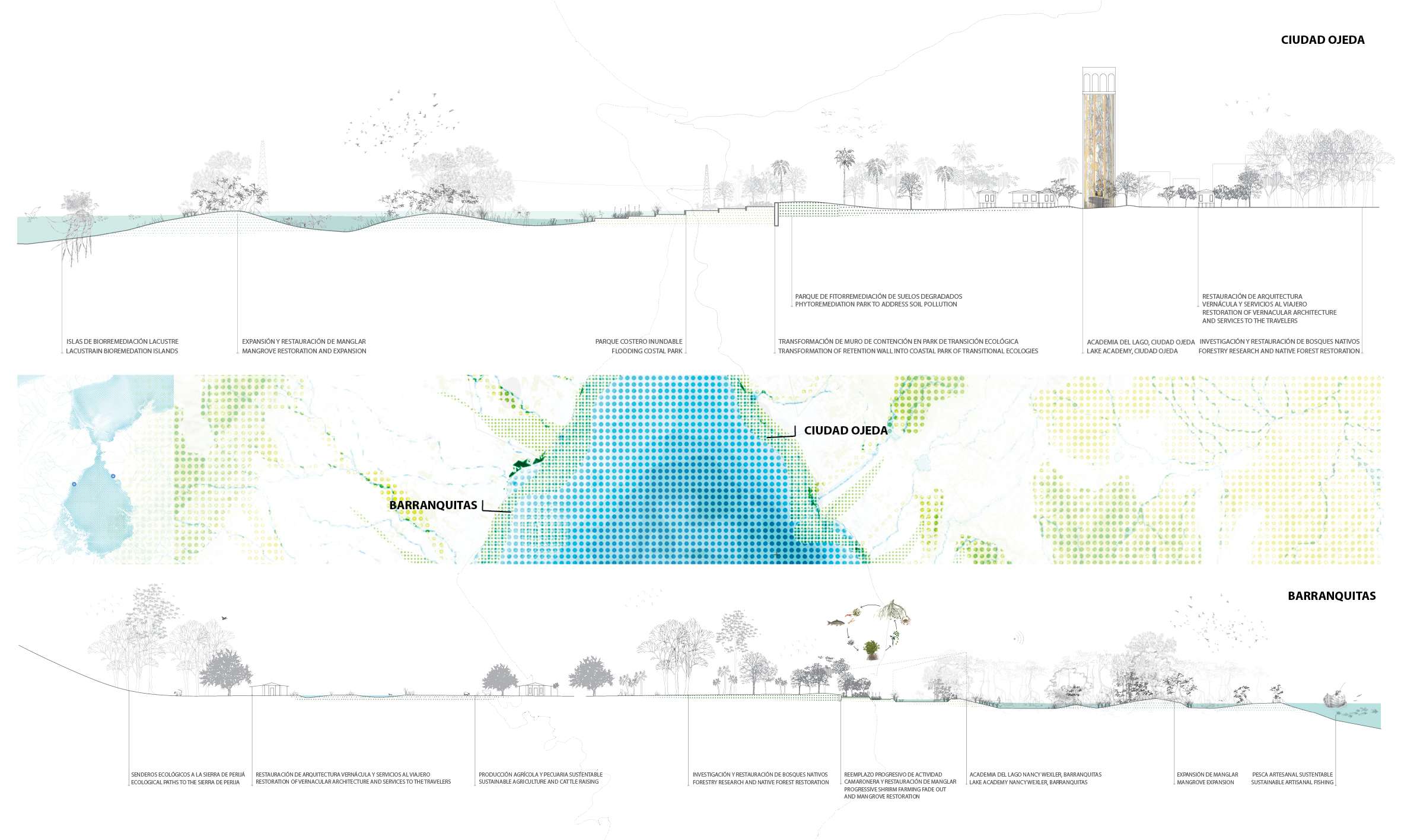
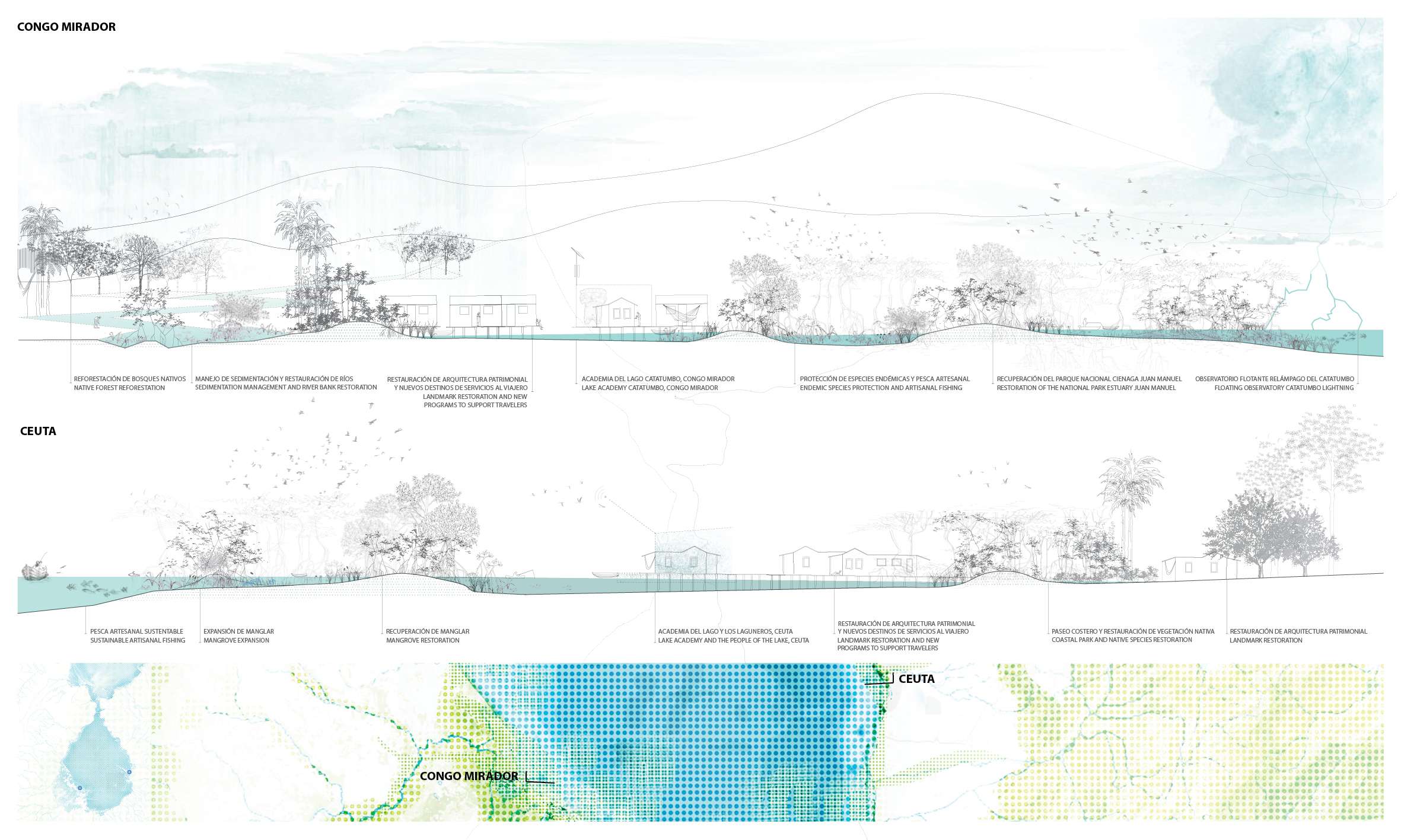
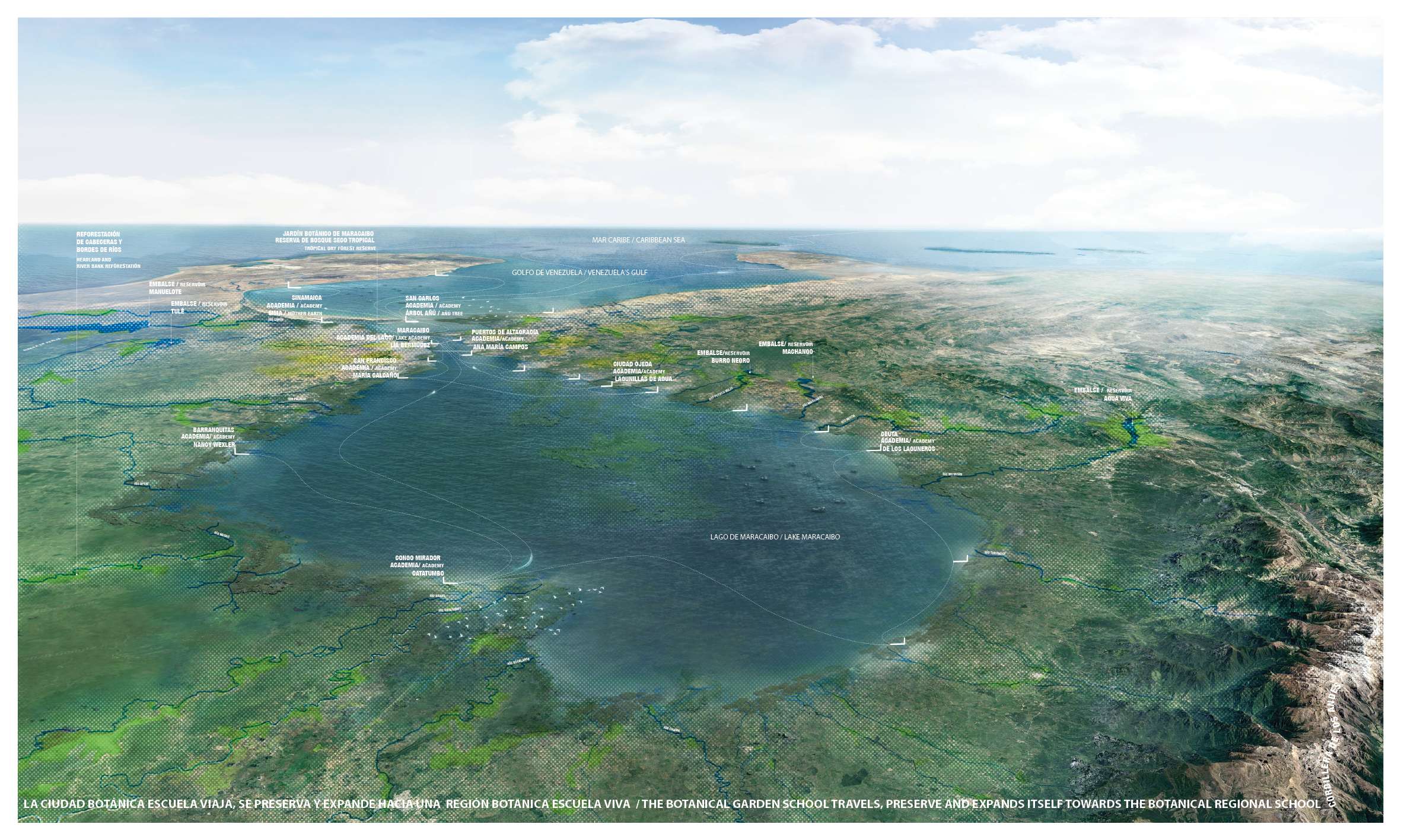
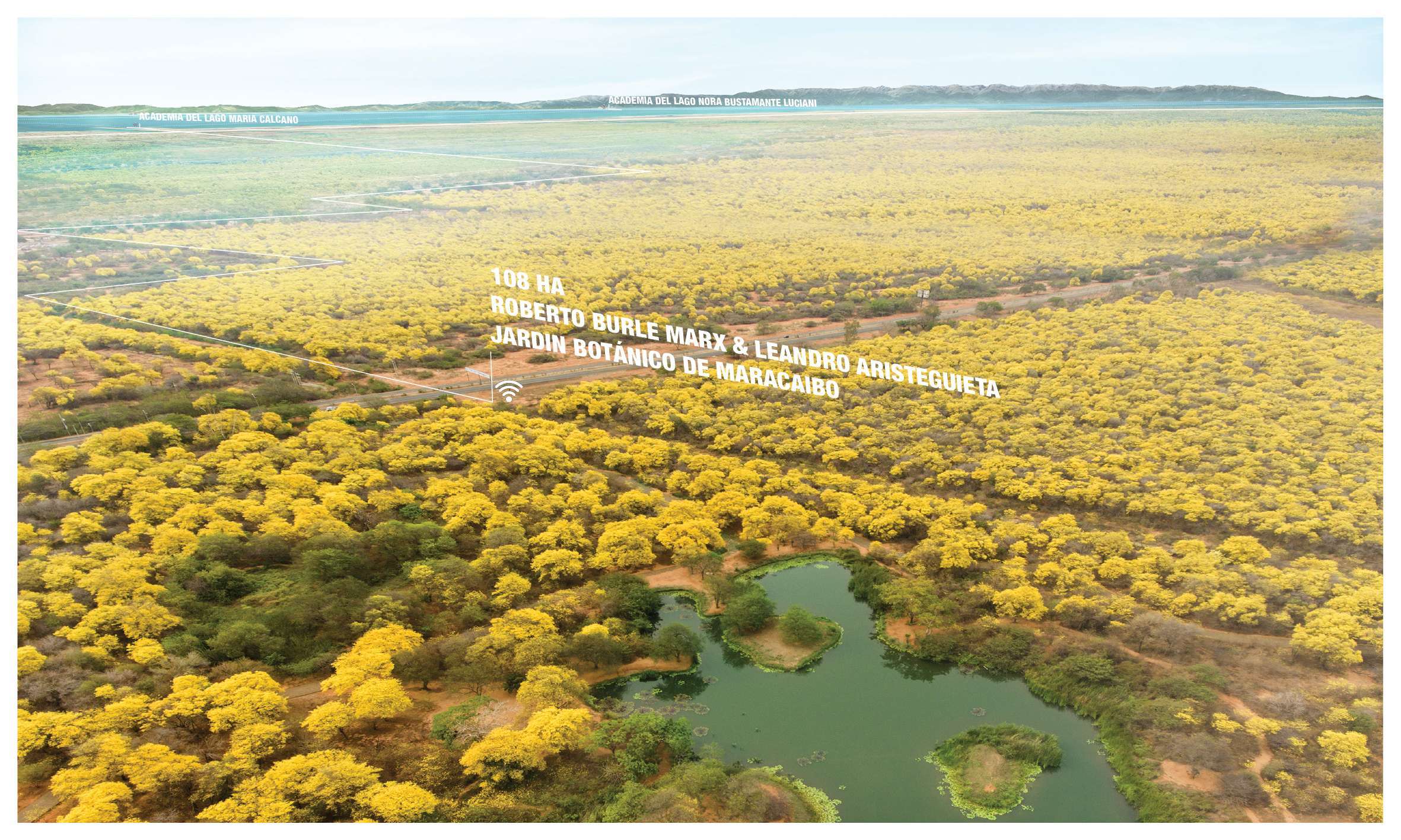
Preservación del Jardín Botánico y su expansión al paisaje urbano y regional: Lecciones del Jardín Botánico de Maracaibo diseñado por Roberto Burle Marx, Venezuela.
Botanical Garden Preservation as expansion towards the Urban and Regional Landscape: Lessons from Roberto Burle Marx’s Botanical Garden in Maracaibo, Venezuela.
Botanical Garden Preservation as expansion towards the Urban and Regional Landscape: Lessons from Roberto Burle Marx’s Botanical Garden in Maracaibo, Venezuela.
The journey begins at the Botanical Garden of Maracaibo (JBM), Venezuela, conceived in 1983 as a Garden School for the preservation of the Tropical Dry Forest by Roberto Burle Marx and Leandro Aristeguieta. Our project considers that the most valuable treasure is the immaterial pedagogical mission of garden school designed to build itself. Having achieved the reopening of the JBM in 2013 after 30 years of closure and abandonment, we tell the Botanical Garden preservation story in three parts:
I. The Garden. The preservation process includes the following: the restoration of the JBM's zones of lives, dedicated to preserving the tropical dry forest; the rediscovery and restoration of the water system that ensures biological continuity; the restoration of the moments of centrality and visibility. This microcosmic system reflects the region and experiments with the expansion and transformation of the JBM beyond its walls.
II. The City. The proposed landscape plan for the commercial corridor of 5 de Julio Av. follows the principles observed at the Garden: the phytogeographical structure translates into an urban-learning adventure from the arid life zone through native dry forests and towards the lake; the continuous water armature is a living and experiential support system that connects native forests and urban centers; and the network of botanical centralities or 'oasis', which together with the water armatures become learning landscapes until they reach the new University Forest.
III. The Region. The phytogeographical areas initially synthesized at the JBM and the City, are restored at the regional scale in places currently devastated. The botanical armatures rebuild the regional hydrological structure, and the moments of centralities are the new Lake Academies. These lacustrine campuses spread mutual transformation among all living species in Maracaibo's Lake, the biggest lake in Latin-America.
This transformative landscape journey is an intimate biographic and public call for urgent action. The Caribbean Sea, Venezuelan's Gulf, Maracaibo lake, dunes, tropical dry forest, savanna, rivers, mangrove, wetlands, Catatumbo lightning, and the Andes are the protagonist of the emotional and botanical expeditions. Restoring the JBM taught us that in the face of abandonment, hopelessness, and apparent impossibility, those seeking passion, love, and knowledge could reach positive results due to continued empathic associations, effort, hope, and courage.
Botanical City, 2020
Preservación del Jardín Botánico y su expansión al paisaje urbano y regional: Lecciones del Jardín Botánico de Maracaibo diseñado por Roberto Burle Marx, Venezuela.
El viaje comienza en el Jardín Botánico de Maracaibo (JBM), Venezuela, concebido por Roberto Burle Marx y Leandro Aristeguieta en 1983 como un Jardín-escuela para la preservación del bosque seco tropical. Nuestro proyecto considera que el más valioso tesoro es la misión inmaterial pedagógica del jardín escuela diseñado para construirse a sí mismo. Habiendo alcanzado la reapertura del JBM en 2013 luego de 30 años de cierre y abandono, contamos la historia de la preservación del Jardín Botánico en tres partes:
I. El Jardín: el proceso de preservación incluye: la restauración de las zonas de vida del JBM, dedicadas a la preservación del bosque seco tropical, la redescubierta y restauración de los sistemas hidrológicos que garantiza la continuidad biológica; la restauración de momentos de centralidad y visibilidad. Este sistema micro cósmico refleja la región y experimenta con la expansión y transformación del JBM más allá de sus muros.
II. La ciudad. El plan de paisaje para la avenida comercial 5 de Julio, sigue los principios observados en el Jardín: la estructura fitogeográfica se traduce en una aventura urbana de aprendizaje desde la zona de vida árida, por el bosque seco nativo hasta el lago; la continua estructura de agua es un soporte vivo y experiencial que conecta bosques nativos y centros urbanos; y la red de centralidades u oasis, junto al agua se convierten en paisajes de aprendizaje que guían hacia el nuevo Bosque universitario.
III. La región. Las áreas fitogeográficas inicialmente sintetizadas em el Jardín y en la Ciudad, son restauradas en la escala regional en lugares actualmente devastados. Las armaduras botánicas reconstruyen la estructura hidrológica y los momentos de centralidades son las nuevas Academias del Lago. Esos campus lacustres esparcen la mutual transformación entre todas las especies que convivimos en el Lago de Maracaibo, el lago mas grande de Latinoamérica.
Este viaje transformador es íntimamente biográfico y un llamado urgente a la acción. El Mar Caribe, Golfo de Venezuela, Lago de Maracaibo, dunas, bosque seco tropical, sabana, ríos, humedales, manglares, relámpago de Catatumbo y los Andes son los protagonistas de las expediciones emocionales y botánicas. Restaurar el JBM nos ha enseñado que, frente al abandono, desesperanza y aparente imposibilidad, aquellos que buscan con pasión, amor y conocimiento pueden alcanzar resultados positivos debido a asociaciones empática, esfuerzo, esperanza y coraje.
Equipo/Team:
Botanical city / www.botanicalcity.org
Carla Urbina / María A. Villalobos.
Jardín/Garden: Investigación, conceptualización, diseño y estrategias de preservación: Carla Urbina, María Villalobos. Gestión estratégica/Management Strategy: François Galletti. Asesores/Advisors: Lourdes Peñaranda and David Gouverneur. Diseño y supervisión/Design and supervision: Carla Urbina, María A. Villalobos, Lourdes Peñaranda. Horticultura y jardinería/Horticulture and gardening: Alicia Ferrer, Fernando Reyes. Biología/Biology: Carlos Portillo. Botánica/Botanic: José Grande. Guillermo Stormes, Juan Morillo. Coordinación de campo/Field Coordination: Juan Marrufo. Coordinación de media y eventos/Media and events coordination: Daniel González. Contratista/Contractor: William Skinner. HOV Services. Ingeniería hidráulica/Hydraulic engineering: Gustavo Prieto. Jardinería y mantenimiento/Gardening and maintenance: Rubiel Brito. Fotografía/Photograph: Carla Urbina, María Villalobos, Ligia Ararat, Andry Jons, Gypsy Rangel, Laura Bruzual, Nubardo Coy, Ricardo León Jatem, JBM archives. Asistentes/Assistants: Génesis Ramirez, Rossana Acosta, María Gracia Gutiérrez. Voluntarios/voluntiers. Aliados institucionales/Institutional allies: Fundación Jardín Botánico de Maracaibo, public, private and multinationals enterprises.
Ciudad/City: Conceptualización y diseño/ Conceptualization and design: Carla Urbina, María Villalobos. Asesor/Advisor: David Gouverneur. Asistentes de diseño/Design assistance: Génesis Ramírez, Irene Torres. Fotografía/Photograph: Ligia Ararat. Asesor en métodos constructivos/ Construction method advisor: William Skinner. Aliados institucionales/ Institutional allies: Fundación 5 de Julio, public and private local enterprises.
Región/Region: Investigación, conceptualización y estrategias de actuación territorial/ Research, conceptualization and strategies: Carla Urbina, María Villalobos. Estaregia política/Political Strategy: Jorge Luis González; Asesores/Advisors: Paisaje, arte y estrategia educacional/Landscape, art and educational strategy: Lourdes Peñaranda; Sociología/Sociology: Daniel Cooper; Reciclaje/Recycling: Grisel Mercadante; Ecología/Ecology: Carlos Portillo. Asistentes de diseño/Design assistance: Génesis Ramírez, Argenis Toyo. Fotografía/Photograph: Ligia Ararat, Andry Jons.
Botanical City, 2020
